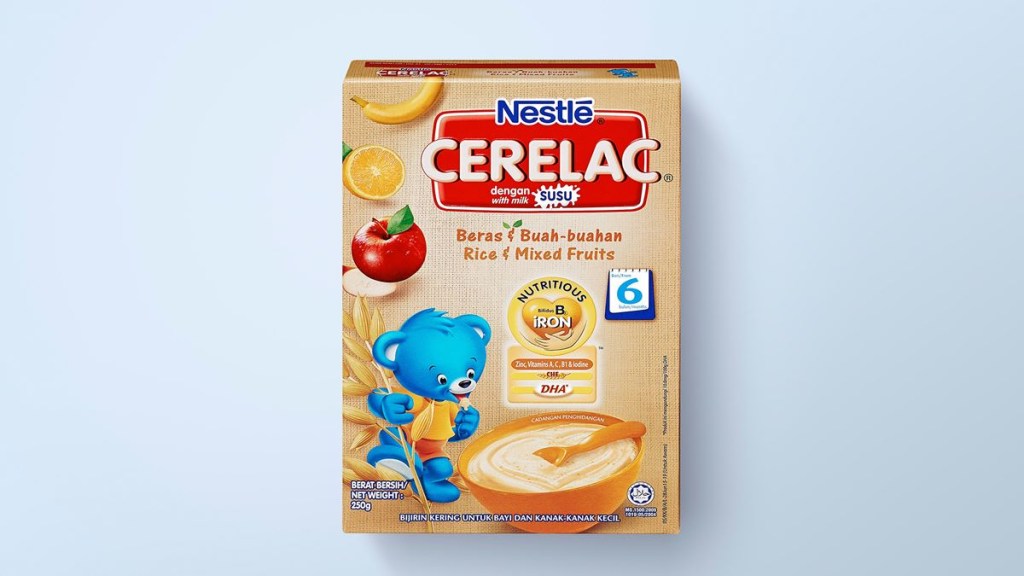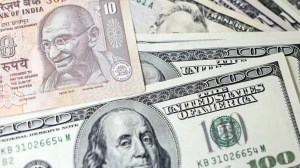A day after a shocking report reveals that Nestle is adding sugar to its infant food, Cerelac, sold in India, the Food Safety and Standards Authority of India (FSSAI) has initiated an inquiry into the controversy surrounding the products.
According to media reports, the regulatory body has vowed to take stringent action against the brand if it is found to be at fault. Meanwhile, a committee will be formed to investigate the allegations. The brand also issued a clarification amid the uproar over the presence of sugar in Cerelac.
“We would like to assure you that our Infant Cereal products, are manufactured to ensure the appropriate delivery of nutritional requirements such as Protein, Carbohydrates, Vitamins, Minerals, Iron etc. for early childhood. We never compromise and will never compromise on the nutritional quality of our products. We constantly leverage our extensive Global Research and Development network to enhance the nutritional profile of our products,” a Nestle India spokesperson said in a statement shared with Financial Express.com over WhatsApp.
The brand also said that compliance is an essential characteristic of Nestlé India and they will never compromise on that.
“We also ensure that our products manufactured in India are in full and strict compliance with CODEX standards (a commission established by WHO and FAO) and local specifications (as required) pertaining to the requirements of all nutrients including added sugars,” the spokesperson said.
Reduction of added sugars is a priority for Nestlé India, the spokesperson added.
“Over the past 5 years, we have already reduced added sugars by up to 30%, depending on the variant. We regularly review our portfolio and continue to innovate and reformulate our products to further reduce the level of added sugars, without compromising on nutrition, quality, safety, and taste. Nestlé India is committed to delivering the best nutrition to our consumers, which we have been doing for over 100 years and would always maintain highest standards of Nutrition, Quality and Safety in our products,” the company spokesperson said.
A report by Public Eye, a Swiss investigative organisation, and the International Baby Food Action Network has revealed that the company is adding sugar and honey to infant milk and cereal products sold in countries like India. The report revealed that tests on Cerelac products sold in India showed, on average, more than 2.7g of added sugar for every serving. Surprisingly, in Nestlé’s main European markets, including the UK, there is no added sugar in formulas for young children.
The report quoted Nigel Rollins, a scientist at WHO told Public Eye and IBFAN: “There is a double standard here that can’t be justified.” He added that the fact that Nestle doesn’t add sugar to these products in Switzerland but is quite happy to do it in lower resources settings “is problematic both from a public health & ethical perspective.”
‘Infant foods category is full of misleading claims’
Amid the furor over Cerelac’s sugar content, it is noteworthy that Nestle’s online platform, providing guidance on infant nourishment, explicitly mentions: “It is advised against incorporating sugar while preparing meals for your infant or providing them with sugary beverages. Some prominent nutrition and healthcare specialists propose refraining from introducing fruit juices in the initial year due to their relatively elevated natural sugar content. …Steer clear of juice blends or alternative mixed beverages containing supplementary sweetening agents. Always scrutinize the packaging.”
In India, all 15 Cerelac varieties contain an average of 3g of added sugar per serving, the report reveals. According to media reports, Cerelac is top-selling baby product in India and it generates over Rs. 20,000 crore in sales annually. The brand has promoted Cerelac and another similar product, Nido, in low- and middle-income countries and portrays them as essential products for child development.
“What has been revealed is a well-known fact which is largely hidden from the public discussions. Taste over the health of children for addiction to high sugar has been the prescription of infant food brands. Unfortunately, poorer nations have a lack of vigilance, awareness, and expertise on the matter which has been wilfully exploited and It’s not about one brand or infant foods only. Largely the health drinks and the infant foods category are full of misleading claims. The cupboards of tall and misleading claims are now spilling and we hope that the regulatory system will be more robust and proactively step in wherever interventions are required,” Ashim Sanyal, CEO, Consumer VOICE told Financial Express.com.
Sanyal also informed that the regulatory framework needs to define standards, specifications and framework for food categories, especially for infant and children foods.
“This requires adopting global best practices just as India did in banning infant breastfeeding substitutes,” he said.
Meanwhile, Dr. Suruchi Goyal Agarwal, Consultant – Paediatrics and Paediatric Endocrinology, Manipal Hospital Varthur also emaphasised that regulatory changes are needed to avoid such situations.
“Time and again, we have encountered situations where foods or food-like substances are labeled as healthy, purportedly promoting faster growth and weight gain in children, or labeled as whole nutrition. Unfortunately, children seem to suffer the most from these pitfalls because parents, wanting the best for their child, are inclined to try products advertised as natural and promoting growth and development. Therefore, regulatory authorities need to stop false advertising and compel companies to disclose the exact ingredients in their products marketed for babies, children, toddlers, and older kids,” she told Financial Express.com.
There needs to be significant guideline changes regarding what these products can contain, she said.
“For example, in any food products for children under the age of one, added sugar, preservatives, and coloring agents shouldn’t be allowed. This represents the kind of cultural and regulatory change necessary to safeguard our children from becoming obese, developing health problems earlier in life, and facing a multitude of medical problems later on,” she added.
Food Safety and Standards Authority of India (FSSAI) provides guidelines for infant and young child feeding in India. The FSSAI regulates standards for baby food under the Food Safety and Standards (Food Products Standards and Food Additives) Regulations, 2011.
Meanwhile, Advocate Siddharth Chandrashekhar, Advocate & Counsel, Bombay High Court told Financial Financial Express.com that these regulations cover various aspects of food safety and standards, including the composition, labeling, and packaging requirements for baby food products.
“2.1.9 deals with ‘Food for Infant Nutrition’ and provides certain conformity requirements such as various Vitamin, mineral along with a list of food additives and content along with quantity for each. There appears to be a peculiar absence of any mention of sucrose (or sugar) with respect to any total permissible value. However, the Total Carbohydrate, percent by weight (not less than) 55.0 is mentioned in this list. It certainly appears that this will need to be suitably modified to keep a cap on excessive sucrose (sugar),” Advocate Chandrashekhar revealed.
According to Advocate Chandrashekhar, the need of the hour to keep a check on this would be:
- Nutrition Labeling Requirements i.e implementing clear and standardized nutrition labeling on food products, including information on sugar content, to help consumers make informed choices.
- Restrictions on Marketing i.e introducing regulations to restrict the marketing of high-sugar foods and beverages targeted at children to reduce their exposure to unhealthy food promotions.
- Food Reformulation i.e encouraging food manufacturers to reformulate products to reduce sugar content and promote healthier options, particularly for foods targeted at children
“The penal provisions for not adhering to the Food Safety and Standards (Food Products Standards and Food Additives) Regulations, 2011, in India are outlined under the Food Safety and Standards Act, 2006,” he informed.
‘Sugar can be harmful to babies’
The World Health Organization (WHO) has warned that exposure to sugar early in life can create a life-long preference for sugary products increasing the risk of developing obesity and other chronic illnesses.
In 2022, WHO had called for a ban on added sugars and sweeteners in food products for babies, and urged the industry to “be proactive” and “support public health goals” by reformulating its products.
“While kids certainly enjoy sweets and as parents it’s very tempting to give in to their sweet tooth, it’s very important to limit sugar consumption. Too much sugar can have many negative effects on the child. Immediate effects include sensory overstimulation leading to sugar rush or hyperactivity. Not only this, it promotes addictive behaviour, taste preference and unhealthy cravings. Research shows that eating too much sugar can lead to nutrient deficiencies. They displace essential food groups, like protein, fruits, vegetables, dairy, and whole grains. Parents must be mindful of hidden sugars in processed baby foods and other packaged foods too,” Dr Shreya Dubey – Consultant – Neonatology & Paediatrics, CK Birla Hospital Gurgaon told Financial Express.com.
Meanwhile, Dr. Goyal highlighted that checking needs to come from regulatory authorities that allow these products to enter the market.
“For children under the age of one, we don’t recommend any added sugar in their food; their entire requirement of sugars should come from breast milk for children under six months, as well as all the recommended formula. For those over six months, sugars should come from the natural sugars present in food, so no added sugar is recommended for children under the age of one year,” Dr. Goyal told Financial Express.com.
‘Recommended allowance of added sugar in babies is zero’
Dr. Goyal informed that the recommended allowance of added sugar is zero. “It should come from natural foods like fruits, vegetables, and grains, which are needed sources of carbohydrates. Therefore, added processed sugars in the form of white sugar, jaggery, or palm sugar are not recommended, and the use of honey is definitely not recommended for children under the age of one,” she said.
In terms of what needs to be done now, the regulation of baby food needs to be stringent, she said.
“The recommended allowances must be followed, and there should be no added sugars, preservatives, or unnatural compounds present in baby food. It should be as close to the natural compound as possible, and added sugar in any form should be avoided. Regarding what parents need to do and other crucial aspects, as pediatricians, we do not normally recommend the use of any processed food in children. Instead, we highly recommend using natural foods, such as fruit puree, boiled or steamed vegetable puree, and homemade foods, especially grains like rice, Dal, ragi, millet, and wheat in their simplest form, along with naturally occurring foods without any added salt or sugar. So, as far as possible, natural foods are best for children,” Dr. Goyal told Financial Express.com.
Concerning packaged food, sometimes it is inevitable that parents may need to use premade food, she pointed out.
“In those instances, they need to scrutinize the packaging to determine the content of the food, including the amount of sugar, salt, added preservatives, and coloring agents. If any of these features are listed in the ingredients, they must be completely avoided for children,” she added.







